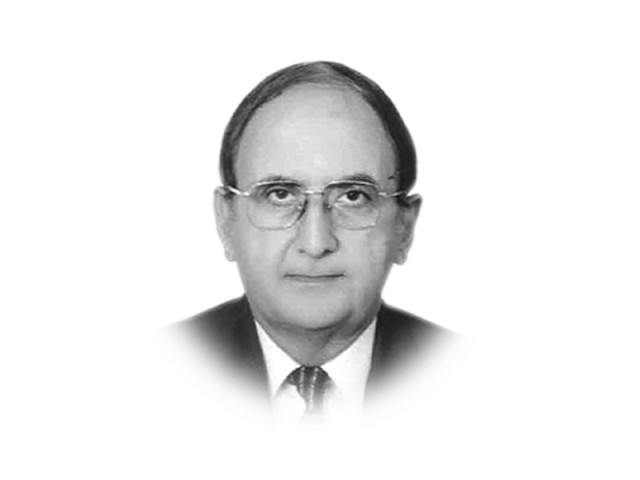New politics in the neighbourhood
Current stalemate in Pakistan-India relations will continue because initial focus of Indian govt would be domestic.

The writer is an independent political and defence analyst. He is also the author of several books, monographs and articles on Pakistan and South Asian Affairs
The electorate has given a clear verdict in favour of the political right with Hindu orientations. The liberal left parties have performed poorly. This trend has a similarity with Pakistan where the political right has performed better than liberal-left political parties. In the case of India, some state-based parties have maintained their political eminence in their respective states but their ability to influence the BJP at the Union level is limited as the BJP and its allies got a comfortable majority and this performance is spread across the country.
The Congress party has suffered a most devastating electoral defeat. It is worse than its defeat in the 1977 election when it got more seats than what it got in 2014. In 1977, its electoral performance in southern parts of India enabled it to get more than 100 seats; it was beaten badly in northern states. Now in 2014 it faces the worst-ever challenge to its future.
The Congress had been continuously in power since May 2004 with Manmohan Singh as the prime minister of an unwieldy coalition. This government’s inability to sustain India’s growth rate at over eight per cent adversely affected its future prospects. Corruption charges against some union ministers regarding information technology licencing and coal mine contracts added to the problems of the Congress government.
The Congress’s problems increased with popular mobilisation against corruption and for better governance at the societal level, especially by Anna Hazare, whose anti-corruption movement reflected negatively on the Congress government. The rise of the Aam Aadmi Party (AAP) also swept away support from the Congress in northern parts of India. In the Delhi Assembly elections, the Congress party lost badly after holding power for three terms. The AAP leader became Delhi’s chief minister but he could not manage the well-entrenched bureaucratic and economic interests, resulting in his resignation. The failure of the AAP to govern Delhi did not return the alienated voters to the Congress, most of them moved on to the BJP.

The Congress also faced a leadership crisis. It attempted to play the ‘Gandhi card’ by moving Rahul Gandhi to the front of the party. He was accompanied by his sister, Priyanka, and his mother, Sonia. This did not work this time because the person in the lead, Rahul, lacked political experience and he could not cultivate an image of the Congress saviour. There was no towering personality in the Congress to get the party through the troubled electoral politics. Manmohan Singh had already been written off because he was to quit the office after the election no matter who won.
The BJP, under the leadership of Narendra Modi, stepped into the political gap. Modi had built a negative as well as positive reputation on an all India-basis. His major success was that he overwhelmed opposition to his leadership within the BJP and mobilised support of hard-line Hindu groups like the RSS and others that admired his tough policies on communal issues in his home state of Gujarat.
The focus of the Modi government is going to be domestic, working to realise the promise of development and economic growth. As the BJP election campaign was funded by big and middle-level business and commercial interests, it will find it difficult to serve the big and middle-level business while at the same time keeping the poor of India satisfied. How can the new government ensure socio-economic justice to the poor? Will it continue with the food subsidies for the poor introduced by the Congress?
The Modi government faces the challenge of operationalisation of the notion of Hindutva in a manner that a balance is maintained between India as a secular state and the narrow and religion-oriented worldview of the Hindu hard-line groups, commonly known as the Sangh Parivar. Any tilt towards the latter would cause problems with Indian Muslims and it could also increase caste conflicts in many parts of India.
The current stalemate in Pakistan-India relations will continue because the initial focus of the Indian government would be domestic. Relations cannot be worse than what these are now: suspension of dialogue and limited trade. Pakistan is expected to ask for the resumption of the dialogue process but the Modi government will in the initial stages talk only about terrorism and trade.
The Modi government can freeze India-Pakistan relations at the current stalemated level. However, it cannot afford to accentuate tension and conflict with Pakistan if it wants to project India as a big player at the global level, rapidly promote societal development, economic growth and serve business interests. Some Hindu groups may pressure the government to adopt a hard-line towards Indian Muslims and play tough with Pakistan. Such a policy will reinforce Modi’s image as a hard-line Hindu leader and adversely affect his regional and global agenda. As the option of war is too dangerous in view of nuclear deterrence between the two countries, the Modi government has limited choices for playing tough with Pakistan for a long time.
Published in The Express Tribune, May 18th, 2014.
Like Opinion & Editorial on Facebook, follow @ETOpEd on Twitter to receive all updates on all our daily pieces.














COMMENTS
Comments are moderated and generally will be posted if they are on-topic and not abusive.
For more information, please see our Comments FAQ